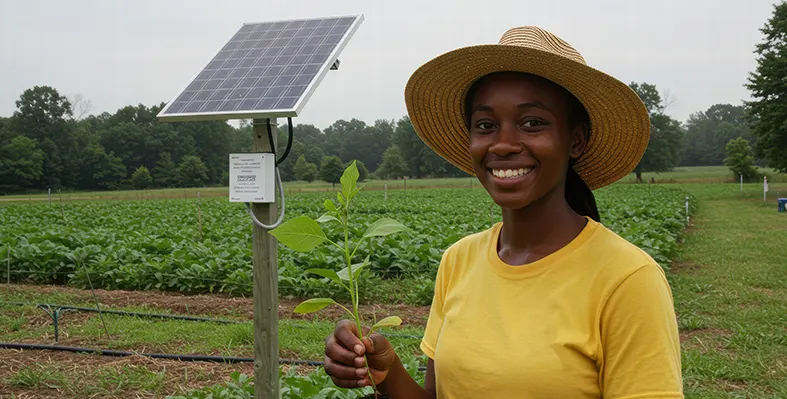As wealthy nations continue to destroy Africa’s agricultural landscape with their vast industrial food systems, farmers, particularly women, belonging to areas that face a dearth of resources are bearing the brunt
Founded in Angola by CEO, Soha Nasser and the region’s startup incubator and accelerator, Acelera Angola, Acelera Agro is an agricultural accelerator that aims to create environmentally friendly solutions that have a global impact. The model focuses on five pillars that include adaptive farming, eco-friendly production, food innovation, circular economies and the water-energy-food nexus. Taking Angola’s unique ecological challenges into consideration, the organisation works on aligning farming practices with these challenges, in turn strengthening food security and resilience, while significantly bringing down emissions.
Having worked on 13 farms in Angola, Acelera Agro has been successful in equipping farmers with essential skills that boost biodiversity in soil systems, conserve water and contribute to regenerative fertilisation and land management. Precision agriculture and circularity are two of the most important pillars of Acelera Agro’s work, comprising data-driven practices that enable efficient resource and pest management, while also minimising water and energy usage from field to food processing. Acelera Agro has also been working on expanding its network across across sub-Saharan Africa through various strategic partnerships with organisations such as Climate KIC. Climate-resilient agriculture involves numerous complexities, many of which can be tackled using valuable tools developed by sustainable agriculture experts trained through such partnerships.
In an article published on Climate KIC, Nasser stated the positive impact the programme had had on their work. She further emphasised how the programme had profoundly influenced her approach to sustainability, particularly her knowledge about circularity, which she describbed as being an ‘eye-opener’.
“It moved beyond recycling and valorising side streams to present a structured approach to circularity. It gave me a new framework to think about sustainability,” Nasser said. In addition, she also highlighted the valuable insights she gained into the challenges involved in gaining financial support.
Women empowerment remains a key priority of the programme, aiming to narrow the gender gap in agricultural leadership.






